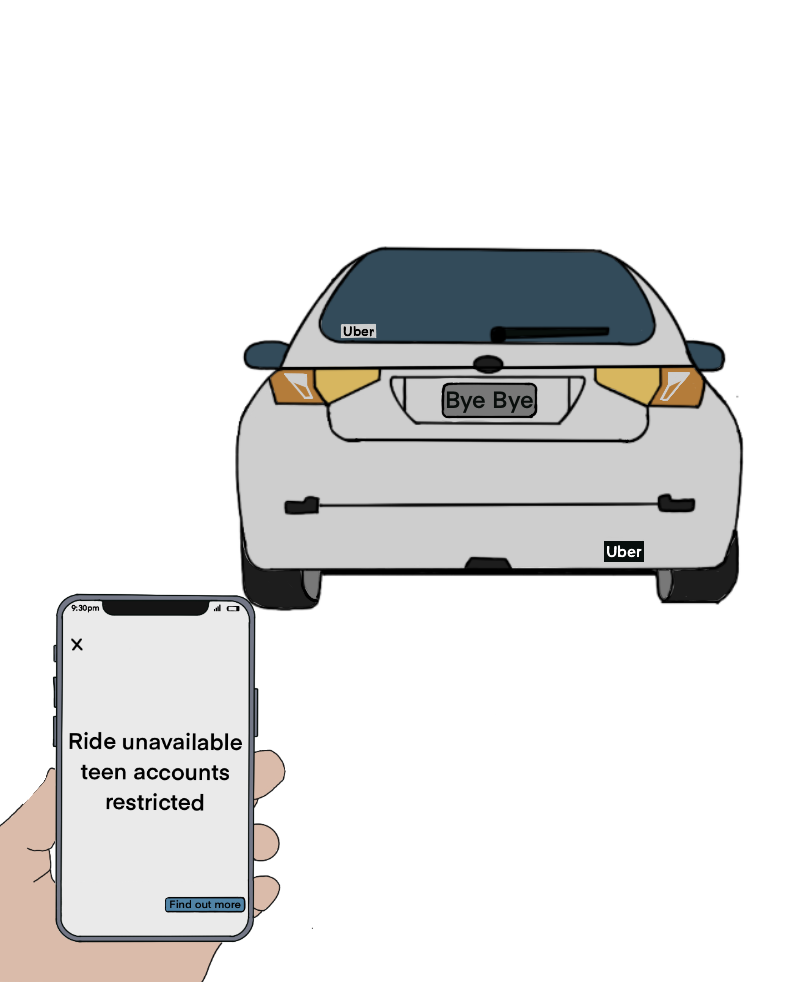In December 2024, the California Public Utilities Commission introduced new regulations requiring ride-hailing companies such as Uber to implement fingerprint-based background checks for drivers transporting unaccompanied minors. This move was intended to enhance safety for teenage passengers by ensuring that drivers undergo a higher level of scrutiny before being approved to transport minors.
Uber’s “Uber Teen” service, launched in California in February 2024, was designed to allow teens to travel independently using the app, with parental approval. The service aimed to provide greater flexibility for families, particularly for parents juggling busy schedules. However, when the CPUC issued a 30-day compliance deadline for implementing fingerprinting requirements, Uber announced it would suspend the service statewide. The company cited the “onerous changes” imposed by the CPUC as the primary reason for this decision.
“Despite our industry-leading safety measures — including mandatory driver background checks and built-in teen safety measures, like PIN verification and live trip tracking for parents — the CPUC has imposed additional burdensome requirements,” an email from Uber to customers said.
The new changes have frustrated both parents and students alike. By choosing to cut corners on security, Uber has complicated the schedules for many families.
“I use Uber Teen to get to and from after-school activities and my weekend job,” FHS junior Brandon Compean said. “Without it, I’m stuck.”
The CPUC’s decision was rooted in concerns about the safety of minors traveling alone. According to the commission, fingerprint-based background checks are more thorough and reliable than the name-based checks commonly used by ride-hailing companies. Fingerprinting is widely considered the gold standard in background screening, as it provides access to federal criminal databases. The CPUC argued that these measures were necessary to prevent minors from being placed in potentially unsafe situations.
Uber’s response to the regulation was swift. The company sent emails to its users, urging them to contact the CPUC and voice opposition to the changes. In its messaging, Uber framed the new requirements as excessively burdensome and suggested they made the continuation of the Uber Teen service unfeasible.
“I am deeply disappointed by their decision to discontinue the Uber for Teens service in California,” FHS parent Heejoo Kim said. “This service was instrumental in managing our family’s schedule, especially given our demanding work commitments. I believe Uber should prioritize the convenience of its users while upholding the rights of its drivers in California.”
For many families, the suspension of Uber Teen has created significant challenges. Teens who previously used the service to travel to school, jobs and social events now find themselves without a reliable transportation option. Parents, already stretched thin by work and household responsibilities, are now forced to adjust their schedules to fill the gap.
“For teens like me, Uber Teen wasn’t just a convenience; it was my way of helping my parents,” FHS junior Sahil Ovalekar said. “I don’t want to rely on my parents for every ride anymore.”
The debate over the new regulations and Uber’s response underlines a larger issue: the balance between public safety and operational feasibility in the economy. Regulatory bodies like the CPUC are tasked with protecting vulnerable populations, such as minors, from potential risks associated with services like ride-hailing. Meanwhile, companies like Uber must weigh the cost of compliance against the profitability and practicality of their services.
The resolution of this dispute could set an important precedent for the regulation of ride-hailing services, particularly those catering to minors. If fingerprint-based background checks become the standard, other states could follow California’s lead, leading to widespread changes in how such services operate.










Imran Ghani ~ Feb 27, 2025 at 2:16 pm
The Uber Teen ban highlights the challenges of balancing safety and convenience. Fingerprint-based background checks, while thorough, can disrupt services families rely on. At RapidHireSolutions, we help streamline background checks to ensure safety without compromising accessibility. Great discussion on this important issue!